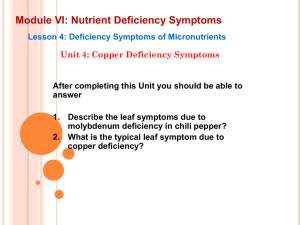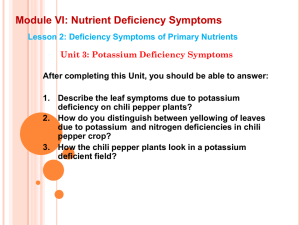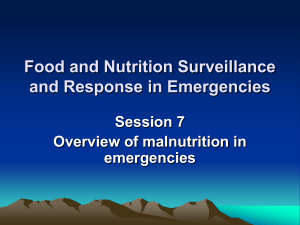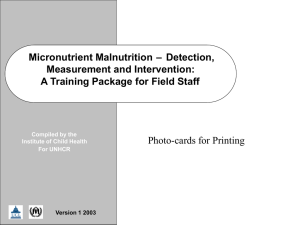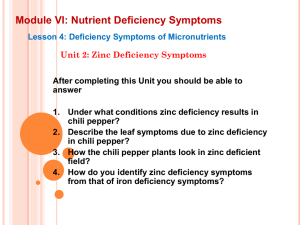Module VI: Nutrient Deficiency Symptoms
advertisement
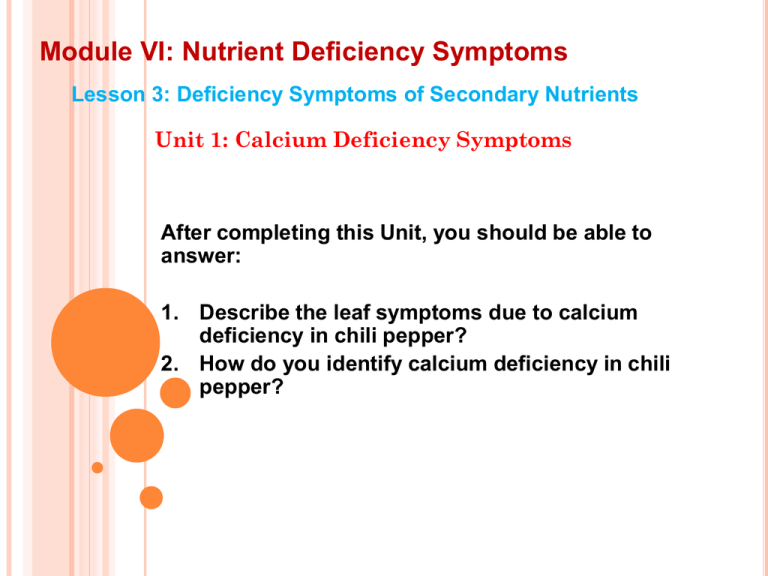
Module VI: Nutrient Deficiency Symptoms Lesson 3: Deficiency Symptoms of Secondary Nutrients Unit 1: Calcium Deficiency Symptoms After completing this Unit, you should be able to answer: 1. Describe the leaf symptoms due to calcium deficiency in chili pepper? 2. How do you identify calcium deficiency in chili pepper? Module VI: Nutrient Deficiency Symptoms Lesson 3: Deficiency Symptoms of Secondary Nutrients Unit 1: Calcium Deficiency Symptoms Mild calcium deficiency may not affect growth, but plants develop a characteristic 'torn leaf' symptom on their upper leaves. These younger leaves are short and are often held erect. The margins of the leaf blade usually turn pale green or pale yellow and tear easily to give a characteristic serrate or saw-tooth appearance. Module VI: Nutrient Deficiency Symptoms Lesson 3: Deficiency Symptoms of Secondary Nutrients Unit 1: Calcium Deficiency Symptoms In some cultivars, the leaf tips become deformed and curl to form sword-like tips, or bend down and break off leaving blunt tips to the leaves. Module VI: Nutrient Deficiency Symptoms Lesson 3: Deficiency Symptoms of Secondary Nutrients Unit 1: Calcium Deficiency Symptoms Many tillers develop from the basal nodes and the newly formed young leaves on these tillers show symptoms of severe calcium deficiency. Module VI: Nutrient Deficiency Symptoms Lesson 3: Deficiency Symptoms of Secondary Nutrients Unit 1: Calcium Deficiency Symptoms Flowering and maturity are delayed by mild calcium deficiency, but fruit size is often unaffected. However, when calcium deficiency is severe, the fruit may not form or it may be partly fallen. Module VI: Nutrient Deficiency Symptoms Lesson 3: Deficiency Symptoms of Secondary Nutrients Unit 1: Calcium Deficiency Symptoms With this, the Unit 1 on Calcium Deficiency Symptoms in sorghum in this Lesson concludes. The next unit in this Lesson is about deficiency symptoms of sulfur in chili pepper. In the third and last unit in this Lesson deficiency symptoms of magnesium in chili pepper is explained.


